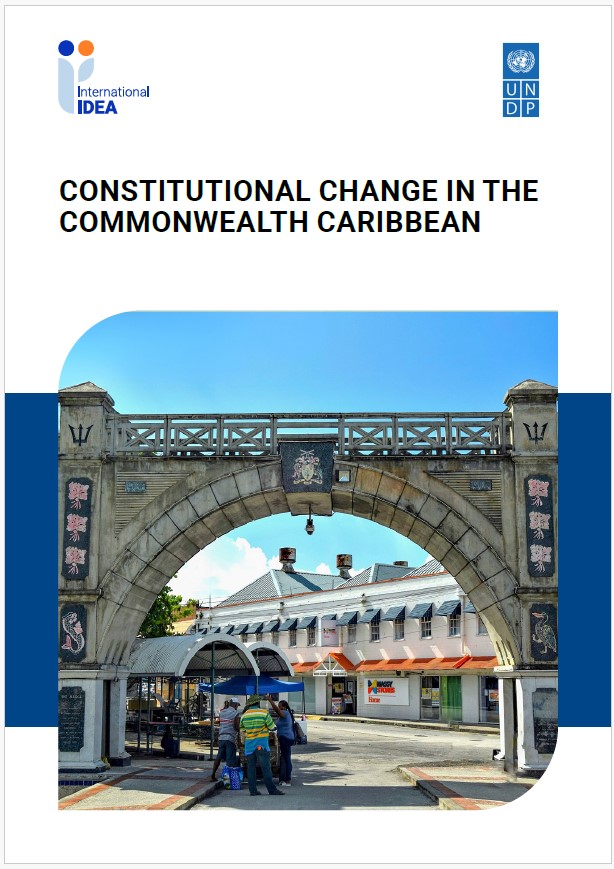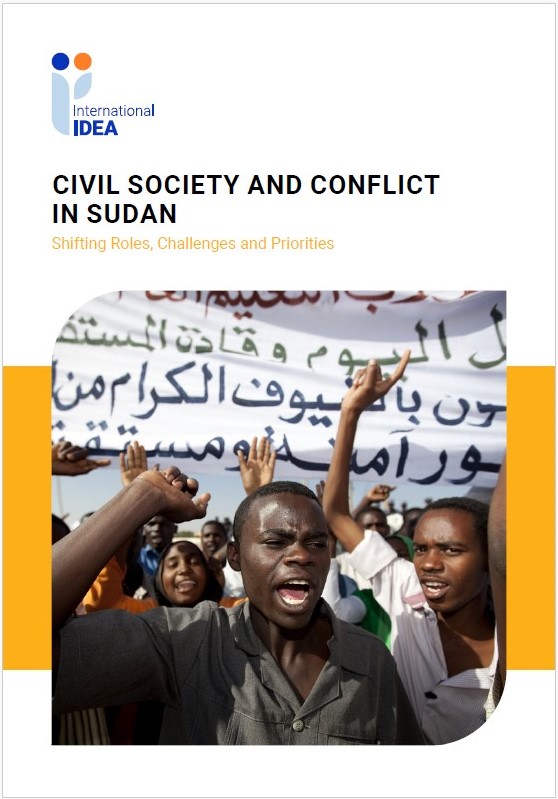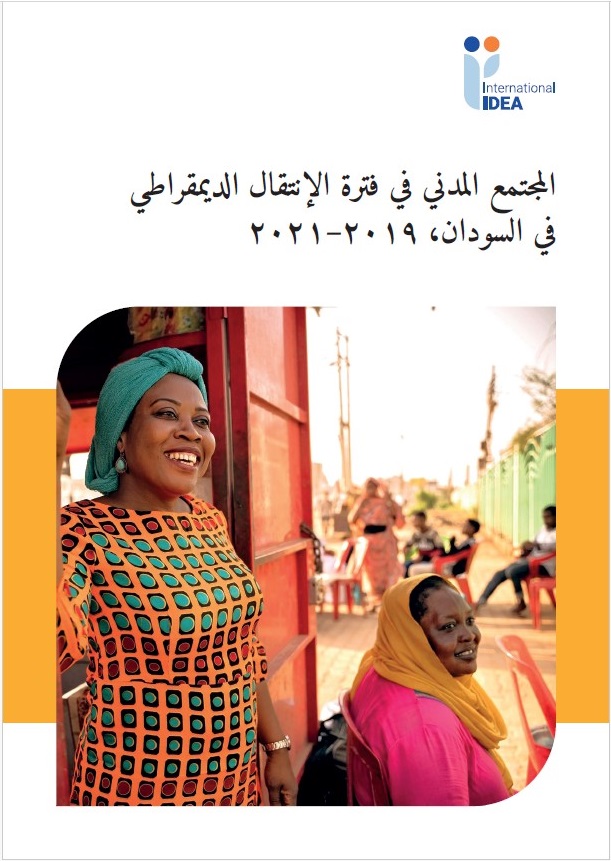Wrapping up a two-day ASEAN workshop on election observation held in Manila, the Philippines Commission on Elections released a statement highlighting the importance for countries in the region to use independent third-party observers as a way to assure the credibility of elections and to share experiences of election observation. “Election observation missions do not just offer insight into politics after all,” said COMELEC Chairman Andres Bautista.
Search
Region
Country
Type
On June 23, the Independent National Electoral Commission of Nigeria (INEC) organized a workshop in Abuja to evaluate the impact of the Electoral Risk Management Tool during the recent general elections. For over a year now, INEC has been implementing the ERMTool with technical and advisory support from International IDEA and the African Union.
“Myanmar is the only country where International IDEA operates in two offices, in two different cities. They are located 400km from each other: one is in Yangon, the largest city in Myanmar, and the other one in the nation’s new capital Nay Pyi Taw, at the Union Election Commission (UEC) building.
Our team has grown to 13 staff members (and counting), of which four are permanently based in Nay Pyi Taw. Our team includes a variety of experts, who share their technical expertise.
“Brazil’s actions to tackle political campaign financing reform, including the proposal to ban donations by private companies, are important in that they bring to the light the importance of a robust system of political finance regulation.”
These remarks were made by International IDEA’s Secretary-General, Mr Yves Leterme, as he delivered the keynote address at the International Seminar on Electoral Financing and Democracy in Brazil, held on 11-12 June.
Constitution-building processes in post-conflict settings are exceedingly difficult undertakings.
Actors that have previously engaged in violent confrontation become responsible for the (re)framing and (re)building of the post-conflict state. Interim constitutions represent a form of ‘political settlement’ that seeks to dis-incentivise armed conflict as a means of pursuing political goals.
“From Turkey to Thailand, from Brazil to Bulgaria and from South Africa to Indonesia: countries around the world have in the past years experienced large scale citizen protests. These demonstrations have often been aided by the power of social media to convene people quickly and in large numbers. The ‘wave of anger’, as the Economist has called it, is often aimed at political parties and political leaders.
This working paper provides an overview of factors that shape constitutional transitions and their outcomes in countries where issues regarding diversity of populations in different regions (known as territorial cleavages) are significant.
The territorial dimension is increasingly prominent in many constitutional transitions and it presents distinct challenges. There is no single or best way to address them.
This report outlines some of the major disagreements that have arisen during the constitution-building process in Nepal, at times severely threatening the peace process.
It also shows that bringing together opposing groups and finding common ground among them is possible.
Electronic voting is often seen as a tool for making the electoral process more efficient and for increasing trust in its management.
Properly implemented, e-voting solutions can increase the security of the ballot, speed up the processing of results and make voting easier. However, the challenges are considerable. If not carefully planned and designed, e-voting can undermine the confidence in the whole electoral process.
Despite widespread acknowledgement that the media is critical to electoral processes, and that media organizations have the potential to affect voter behaviour, electoral assistance providers do not always prioritize media integration in their work.
Together with the AU Department of Political Affairs and the Deutsche Gesellschaft für Internationale Zusammenarbeit (GIZ) we at International IDEA are organizing a five day capacity building workshop in Conakry, Guinea starting Monday.
The training is part of the BRIDGE programme and aims to build the capacity among the staff of the electoral commission in Guinea to enhance the integrity of electoral operations ahead of the upcoming elections.
STOCKHOLM – The President of the Superior Electoral Court, Minister Dias Toffoli, confirmed Brazil´s interest in joining International IDEA at the opening of theInternational Seminar on Electoral Financing and Democracy, taking place in Brasilia on 11-12 June. International IDEA is the sole intergovernmental organization that supports sustainable democracy worldwide.
As often in Mexico critical elections are more common than normal elections. Surprisingly, Sunday’s elections took on an extraordinary importance and meaning for a midterm election in which the presidency is not up for grabs. The exceptional nature of what happened at the polls in Mexico on Sunday has to do with the voters’ movement, with what was at stake in the election and the implications of the outcome.
On Wednesday, 10 June, representatives of International IDEA's 28 Member States met in Stockholm for the 8th Extraordinary Session of the Council. The Council of Member States is the governing body of the organization.
A diferencia de lo que ocurre en otros países, en México las elecciones críticas son más frecuentes que las elecciones normales. De manera sorpresiva, los comicios del día de ayer adquirieron una importancia y un significado extraordinarios para una elección intermedia en la que no estaba en juego la Presidencia de la República.
International IDEA and the Parliamentary Centre of Canada jointly implement a project that supports the democratic developments in Bhutan through capacity building of members of the parliament and its staff.
Tensions are reaching boiling point in Burundi as outgoing President Pierre Nkurunziza insists on running for a third term as the country’s leader. His bid comes amid protests of large numbers of citizens and the international community that such a move would be unconstitutional and contrary to the Agreement of Arusha for Peace and Reconciliation, signed in 2000 to end to protracted ethnic conflict in Burundi.
Tensions are reaching boiling point in Burundi as outgoing President Pierre Nkurunziza insists on running for a third term as the country’s leader. His bid comes amid protests of large numbers of citizens and the international community that such a move would be unconstitutional and contrary to the Agreement of Arusha for Peace and Reconciliation, signed in 2000 to end to protracted ethnic conflict in Burundi.
International IDEA hosted the Club de Madrid Next Generation Democracy Roundtable on Wider Europe and Post-Soviet Eurasia on 2-4 June. This event looked more closely at the challenges and opportunities for improving the quality of democracy in Post-Soviet Eurasia and Wider Europe. A diverse region, as it features different institutional performances, political trends and economic outlooks.


